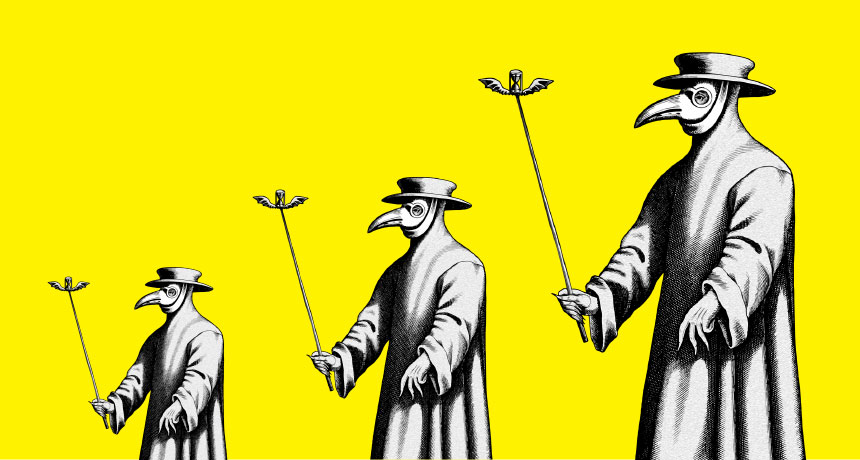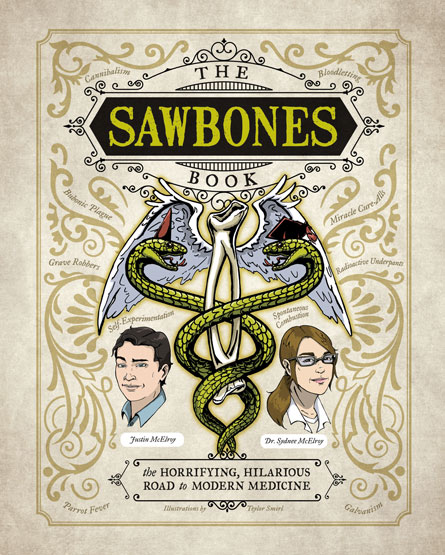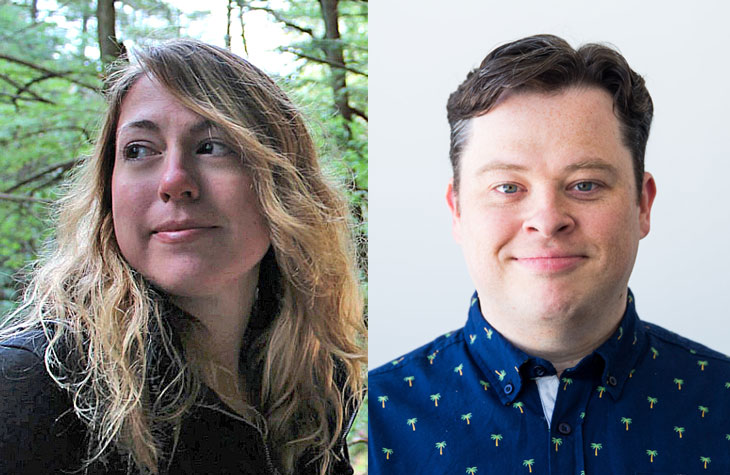‘Sawbones’ invites readers to laugh at the bizarre history of medicine
The popular podcasters’ book ties pitfalls of medical history to modern pseudoscience

WE’VE COME A LONG WAY During the Black Death in the 14th century, plague doctors wore this now-iconic outfit as they attempted to treat patients. Sawbones illuminates what doctors thought they were accomplishing.
Dv8stees/Wikimedia Commons (CC BY-SA 4.0)
 The Sawbones Book
The Sawbones Book
Justin McElroy and Dr. Sydnee McElroy
Teylor Smirl (illustrator)
Weldon Owen, $24.99
Humans took a long, weird road to modern medicine. We don’t have everything figured out yet, but at least we’ve learned not to drink the feces of cholera victims and never to plug dental cavities with a lizard’s liver — unlike some of our ancestors.
Gruesome methods like these are the heart of The Sawbones Book, a fleshing out of five years of the Sawbones podcast. The podcast features Sydnee McElroy, a family physician, diving deep into the history of bizarre and usually ineffective treatments for a wide range of ailments. She’s joined by her husband, Justin, a veteran podcaster and writer, who plays a witty but less academically inclined foil.
The book boasts impressive variety, including histories of treatments for the plague (strapping a live chicken to swollen lymph nodes), eating medicinal mummies (no, not gummies — mummies) and self-experimentation (do not try that at home). The authors keep up the podcast’s back-and-forth dynamic, with Justin cracking jokes in sidebars amid Sydnee’s lighthearted but (sometimes nauseatingly) detailed explorations. Teylor Smirl’s illustrations, ranging from whimsical comics to vivid depictions of an anti-seasickness boat, bring to life the most macabre topics.
Some of the most visceral moments are concentrated in a chapter on cholera. Justin warns that “things are about to get so, so bad,” and they do. Sydnee does not flinch when describing the work of Max Joseph von Pettenkofer, a 19th century hygienist who was so (wrongly) convinced that cholera could not spread to people who practiced good hygiene that he drank diarrhea from a patient who had died of the disease. Naturally, he got cholera — but he survived and proclaimed his experiment a success.
In recent years, the McElroys have taken on more contemporary subjects, addressing homeopathy, the anti-vaccination movement and conspiracy theories about fluoride in drinking water. Science News spoke with Justin and Sydnee about their new book, their show and their efforts to inspire more trust in science and, in particular, medicine. The discussion that follows has been edited for length and clarity.
SN: What inspired you to start the podcast, and then turn it into a book?
Justin: We wanted to do something that was about medicine because Sydnee’s a doctor, but we didn’t want get into giving medical advice. And Sydnee’s always had sort of a passion for medical history. She’s got a bunch of old medical devices, including a WWI-era stethoscope and a trephine [a metal tool used to drill holes in skulls]. It’s a passion of hers.
Sydnee: I enjoy learning these things. I enjoy telling Justin about them. And the fact that people like to listen is just the icing. We knew pretty early on that, “Hey, this would make a really good book.” One incarnation could have been a set of trivia articles, but we really wanted to bring to the book what we bring to the podcasts, which is our interactions with each other and the humor.

SN: Which of the topics in The Sawbones Book would you most like to explore in a separate book?
Justin: The first incarnation of this was a book about patent medicine [ineffective or dangerous but wildly popular concoctions, often including alcohol or drugs, that were sold by traveling salesmen into the early 20th century]. We did a series on the show called “Heroes of Patent Medicine,” because it is just the buckwildest time in medicine. We get up to some real shenanigans, medically speaking. I think it’s fascinating.
Sydnee: There’s a ton to talk about, but it’s also still relevant today, sometimes directly. Some of the medicines that we learn about — forms of them are still on the market.
Justin: There’s nothing new under the sun, right? If you understand how we have marketed and sold fake cures to people in the past, you realize that people are doing it now. You can have a good laugh about it, but then realize, “Oh, wait a minute. It’s the exact same techniques that have been used to sell cocaine and cough syrup for all these years.”
SN: How hard is it to tout the merits of actual evidence-based medicine, given how pseudoscience has a big platform right now?
Sydnee: When we first started the podcast, “Can you believe that we used to do this?” was really the premise for most of the episodes. Over time it became apparent that this stuff still happens, and it’s not as easy for us to recognize. Because it’s always easy to look back at history and say, “Oh my gosh, they were so off base. That was so stupid.” It’s a lot harder to do when it’s happening. And as a physician, I felt this responsibility. And then as our audience grew, because we did have a platform, I felt like it was part of our job to challenge misinformation and pseudoscience.
SN: What advice would you give to those who don’t have medical degrees but still want to call out pseudoscience when they see it?
Sydnee: Try to withhold judgment. As soon as you tell somebody they’re dumb, you’re done. It doesn’t matter what you say, they’re just going to be more entrenched in their beliefs. Most parents who are anti-vaccine are probably afraid of something. They’re misinformed, and they’re completely wrong, but their fear is real.
SN: Anything else that you want readers to take away from the book?
Sydnee: I hope it helps people who aren’t entrenched in the medical world take a wide-angle lens on medical history and think, ‘Gosh, science is a process, we’re constantly learning, we’re constantly growing.’ Vaccines, I think, can seem miraculous but they’re not. They’re hard-won through years of scientific inquiry and study and research and falling down and getting back up again and working harder. The things that science has been able to do are incredible.
Buy The Sawbones Book from Amazon.com. Science News is a participant in the Amazon Services LLC Associates Program. Please see our FAQfor more details.







